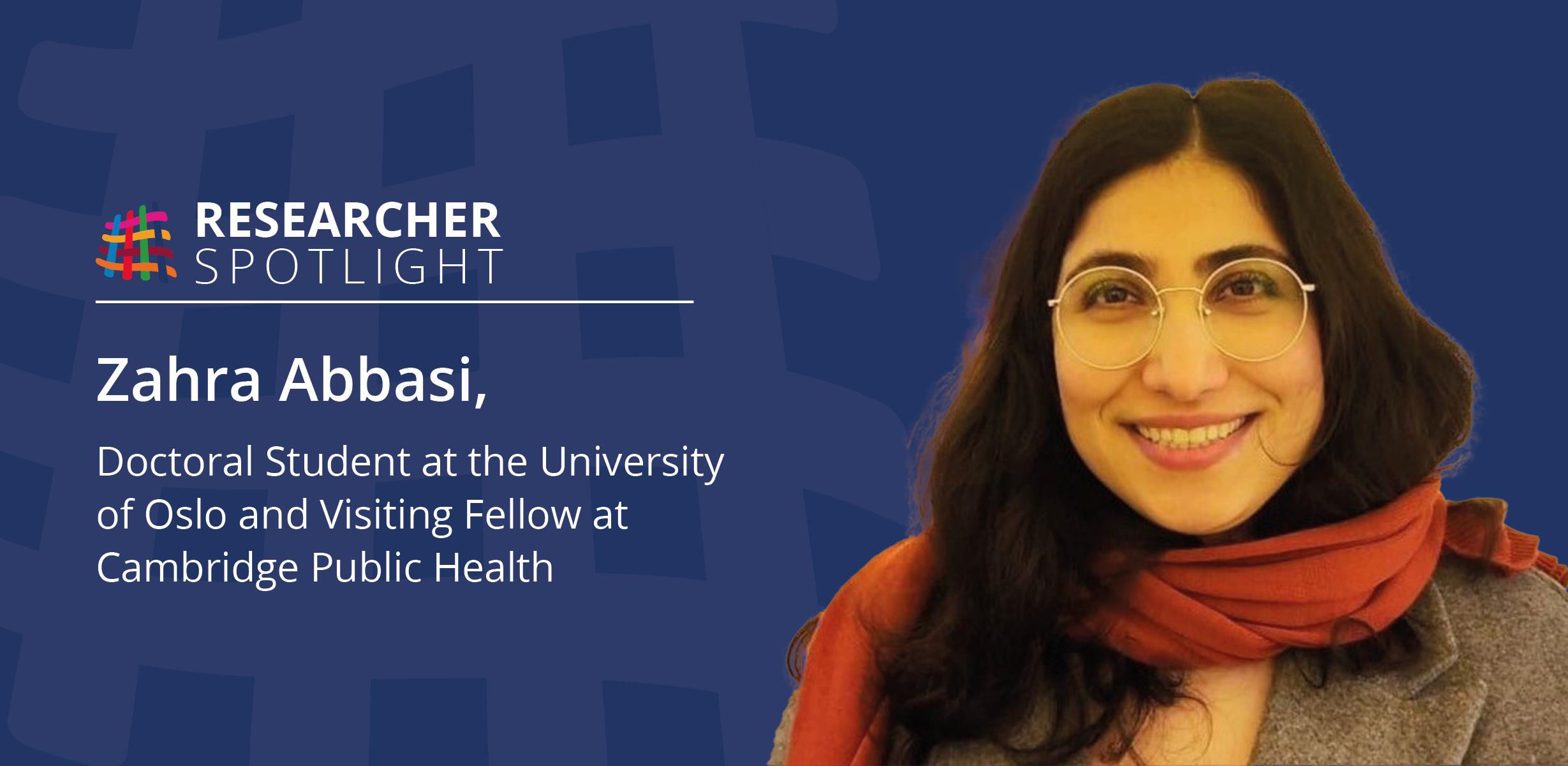
Zahra Abbasi is a PhD candidate and lecturer at the University of Oslo and a Visiting Fellow at Cambridge Public Health. She has a background in comparative literature and experience in care practices. Her PhD project pertains to understanding online-offline conceptualizations of mental health in contemporary Iran.
Tell us a little bit about your academic background
My academic journey began with a focus on natural sciences during my pre-college years, but my path soon shifted toward the humanities. I pursued a Bachelor’s and Master’s degree in English Literature, concentrating on comparative literature, with specific interest in decolonial studies. My curiosity in health and wellness developed further during a fieldwork for a research project on alternative coping mechanisms among young religious women with migration backgrounds. This experience sparked a deeper interest in how the discourse of health is interwoven with subjectivity.
What is your research about?
In brief, for my PhD, I focused on the discourse surrounding health and wellness, examining the underlying social factors driving this trend in the Iranian milieu. I explored the emergence of new health norms and self-care practices facilitated through unofficial platforms, such as online communities, and examined the rise of celebrity psychologists. A central aspect of this research involved analyzing the motivations and underlying dynamics within these spaces, including social media and popular culture.
To elaborate further, my research investigates the increasing importance of a healthy body as an identity marker in contemporary Iran, particularly among women, and explores the dynamics of decision-making regarding healthy lifestyles, bodies, and minds within Iran’s socio-cultural landscape. To collect data, I employed qualitative methods, including archival research, semi-structured interviews, and online ethnography.
The PhD monograph begins with a historical chapter that provides context on the evolving notions of body and mind cultivation since early modernity in Iran, highlighting the legacy of state interventions in shaping ideals surrounding how one should live through both corporeal and psychological measures. The project traces the influence of state-sponsored health campaigns, particularly from the first Pahlavi era in the early 20th century, which promoted ideals of the "healthy citizen" and follows this trajectory up until 2010. In contemporary Iran, particularly since the 2010s, maintaining a healthy lifestyle and engaging in self-care practices such as fitness, yoga, dieting, psychotherapy, and health coaching have gained popularity, driven by socio-economic matters, including but not limited to exponentially rising migration rates. I further explore the plurality of self-care performances linked to specific tools promoted on social media populated by diasporic communities, especially Instagram, which is often seen as an unofficial space parallel to the official by the interlocutors. This platform plays a crucial role in showcasing a wide range of health practices and in promoting the notion of "healthy micro-celebrities" who advocate for women's health issues, often in ways that diverge from traditional norms. I showcase that somatic element of this phenomenon highlights a significant shift away from conventional educational values that have historically downplayed the importance of the physique.
Overall, my work seeks to understand how sociocultural factors influence the emergence of health as a key aspect of identity and how healthy lifestyle choices have become framed as both a moral choice and a form of self-managed care, illustrating the complex interplay between individual agency, technology, and societal structures in shaping contemporary Iranian lifestyles.
What do you enjoy most about your work?
The most insightful aspect of my work, on a personal level, is engaging with individual life stories. In interviews, I typically began by asking about my interlocutors’ experiences with maintaining healthy lifestyles and seeking mental health support. These conversations often evolved into deeply personal accounts of their positionality and significant life events, such as migration, and how these experiences shaped their understanding of their own bodies and health within the current context of digital wellness movements. As someone with a keen interest in literature and narratives, I value the trust placed in me with these lived-experiences, as they offer important insights into mechanisms of individuals navigating complex socio-cultural and economic contexts.
What’s next in your research plans?
I aim to leverage my background in the humanities and training in medical anthropology to contribute to research at the intersection of health and self-care, with a focus on the broader SWANA region. I believe this perspective allows me to explore how sociocultural contexts influence health practices and decisions, engaging with global health policies. I am mostly interested in conducting research that integrates diverse disciplinary insights, emphasizing how sociocultural contexts shape health practices and decisions, with hopes of fostering research that is actionable.

